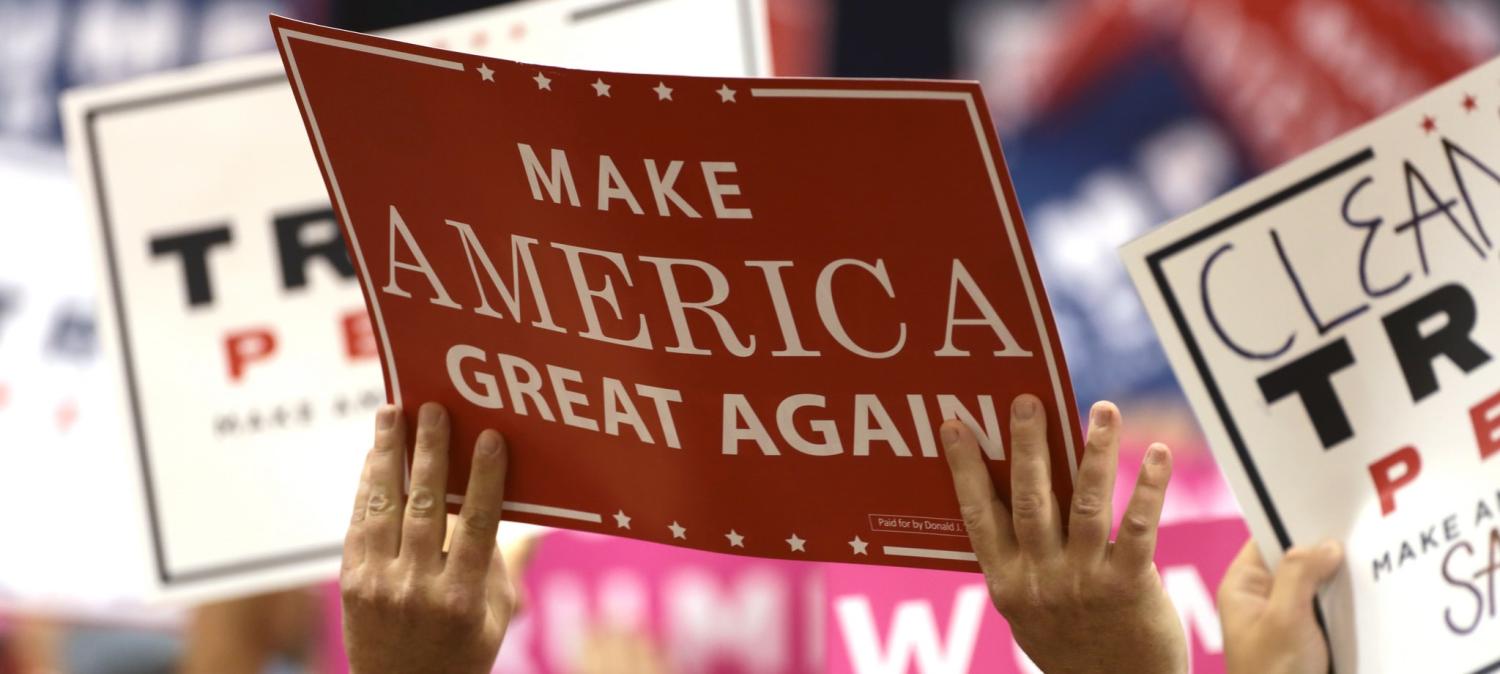From his vantage point at Duke University, North Carolina, Professor of Political Science and Public Policy Peter D Feaver says exaggerated fears have elbowed out meaningful foreign policy debate during this race to the White House, and that this will make the job of the next president harder.
Dr Feaver, who worked in the George W Bush Administration as a special advisor for the National Security Council from 2005 to 2007, was among the Republican national security leaders who took their opposition to a Trump presidency public in an open letter in March.
'Saying "Never Trump" was an extraordinary step for me. I wouldn’t have done that if I could have lived with him as a candidate. But the risks and challenges that would be posed by a Trump presidency are unusually high,' Dr Feaver said in an interview on Monday.
'However. not every criticism made of Trump is accurate. There has been a certain amount of exaggeration in the discourse and I think it’s unfortunate in that it has the effect of detracting from the more reasonable concerns.'
By way of an example, Dr Feaver pointed towards Trump’s tweet last week on the battle to retake Mosul. The GOP candidate was criticised by many for coming out against American policy while a battle was underway. Dr Feaver has no problem with this criticism but he does object to claims it was without precedent.
‘The Dems were doing just that during the surge in 2007. In fact, they tried to legislate measures that would have strangled that in the cradle. So what Trump was doing was dumb but not unprecedented.’
He also thinks the dangers of a having ‘Trump’s finger on the nuclear button’ have been exaggerated and that the emphasis on the speed with which the system would respond to a legal order from the president is misplaced. This has been a constant theme of the Clinton campaign, which this week launched a remake of the ‘Daisy’ advertisement used by the Lyndon B Johnson campaign to suggest Barry Goldwater couldn’t be trusted not to trigger a war.
'People have implied that if Trump so much as brushes up against the button, within seconds missiles would fly and nothing could stop them. But it does not work that way. Presidential orders have to pass through the chain of command and there are safeguards in place,' Dr Feaver said.
'So the critique that because Trump tweets at 3am he could be nuking at 3am exaggerates that risk. The danger is he could send a 3am tweet that insults the North Korean leader, triggering a diplomatic crisis that could spiral out of control. His temperament is not unimportant; there are many ways it could lead to bad outcomes.'
Dr Feaver, who believes Hillary Clinton will be elected (but with a margin trimmed by the FBI’s new email investigation), also has a problem with exaggerated Trump reporting getting in the way of proper foreign policy debate. This will ultimately handicap the new president, he believes.
'If she wins, Hillary Clinton will have been elected without much serious debate on foreign policy. She didn’t have to do so in the primaries, when she was challenged by a candidate who did not have a coherent foreign policy critique, and she hasn’t had to do it after that either because Trump has not had a coherent critique.'
'If Americans reject Trump, the most you can say is he did not pass the commander-in-chief test. The result will not have come because the electorate judged the foreign policies of the candidates. So she will have a lot of work to do building support for any heavy lift. And if you look at the mistakes made over the last seven, eight years, there is going to be a lot of lift.'
Dr Feaver says observing the US to be in a worse geopolitical position than it was at the beginning of an Obama Administration is a ‘non-partisan observation’, one that reflects both the own-goals scored by that Administration and circumstances beyond its control.
'Add it all up and we are in worse shape. So the new president, who is likely to come in with the highest negative rating of any president in recent memory, will come in with some heavy lifting to do and it will be heavier than it should be because the electorate did not get mobilised during the campaign.'
By way of consolation, Dr Feaver says the team most likely to be victorious on election day is aware of the challenge.
'We haven’t heard about it because in a partisan campaign you can’t be candid but in private I think the Clinton people understand the challenges and are committed to not being inwardly focused. You don’t hear talk like we did when Obama came in, about the need to focus on nation building at home, about being over-extended and the need to be more inward looking. The Clinton people understand they can’t do that. They understand that was a mistake.'
Photo by Flickr user Gage Skidmore.
